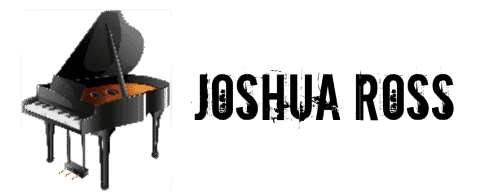As an Amazon Associate I earn from qualifying purchases.
Pianists can grace stages in a variety of venues, ranging from intimate settings to grand concert halls. For instance, as a pianist, I’ve had the pleasure of performing in large venues such as Carnegie Hall and even small local church concert series where the interaction with the audience is as nuanced and intricate as the music itself.
Equally memorable are the moments under the spotlight in large auditoriums, akin to those experiences described by performances at famous venues, where the vastness of the space adds a certain gravitas to each piece played.
Want to Learn Piano?Click Here

In addition to these more traditional venues, pianists often find themselves in unique performance situations, such as private events or collaborating with other musicians in studios. I remember times when accompanying vocalists or instrumentalists during recording sessions provided an entirely different dynamic to playing solo; it’s all about adapting to the synergy of the group.
The life of a pianist is not solely limited to live performances, either. Many pianists also share their talent through teaching, both in private lessons and in academic settings. Through these interactions, I’ve found joy in guiding budding musicians to discover their own paths on the piano keys, which can be just as rewarding as any applause received at the end of a concert.
Venues for Piano Performances

Pianists have a wide array of venues where they can showcase their artistry, from the grand stages of concert halls to the intimacy of private events. Each setting offers a unique ambiance and audience engagement, influencing the pianist’s performance and repertoire choices.
Concert Halls and Theatres
Concert halls and theatres are the traditional stages for pianists, especially for those specializing in classical music. As a concert pianist, you may dream of performing in renowned venues like Carnegie Hall, where the acoustics are as impressive as the history.
The experience of playing a concert grand piano in front of a full orchestra and an attentive audience can be both exhilarating and demanding, often requiring a repertoire of well-known piano concerts from composers like Beethoven or Chopin.
Recording and Broadcasting Studios
In a studio setting, you can work on an EP or a soundtrack for a film. Studios offer controlled environments perfect for recording classical pieces or creating music that blends different genres. This setting is crucial for pianists who wish to distribute their music widely or collaborate with other artists and actors.
Educational Institutions
Schools and universities often provide stages for pianists both as performers and educators. Whether you’re pursuing a degree or delivering a masterclass, these venues are essential for honing your skills. As a teacher, you’ll not only perform but also pass on the traditions of piano music to students at different levels of their education.
Religious and Community Centers
As a church musician, you might find yourself accompanying a choir or playing solo pieces during services. Religious and community centers are key venues for engaging with the community and often include performances that reflect the values and traditions of the audience.
I’ve had this experience in several settings, from large Methodist churches to smaller worship centers.
Private and Social Events
If you enjoy more personal and direct interactions with your audience, then performing at private parties or weddingsmay be your venue of choice. The repertoire here can vary widely, from classical piano music to contemporary songs, tailored to the occasion and the hosts’ preferences.
Online Platforms and Virtual Concerts
The digital world has opened up new venues for pianists. From live-streaming a recital on social media to participating in a virtual concert, online platforms allow for global reach. Even virtual teaching has become a norm, with private lessonsbeing conducted over video calls.
Collaborations with Other Art Forms
Lastly, collaboration with other art forms like dance, visual arts, and theatre can create unique performance opportunities. Pianists often contribute to the narrative of a performance, elevating the overall experience with their music.
Hello & thanks for stopping by! I’m a professional concert pianist and piano instructor. In the United States, I’ve given successful performances in several places including New York, Florida, Connecticut, & New Jersey, I have also performed internationally in Italy and made my Carnegie Hall debut in 2014. I enjoy blogging about the piano, the art of performance, general music, current events and the latest in music production.
